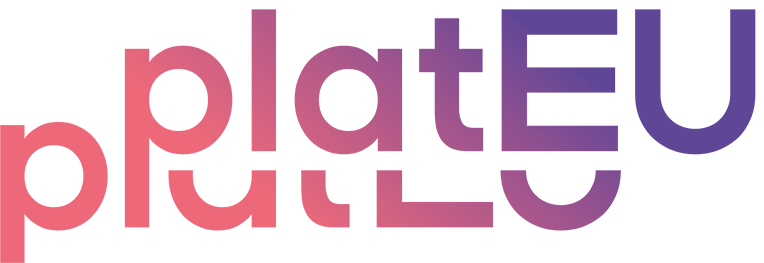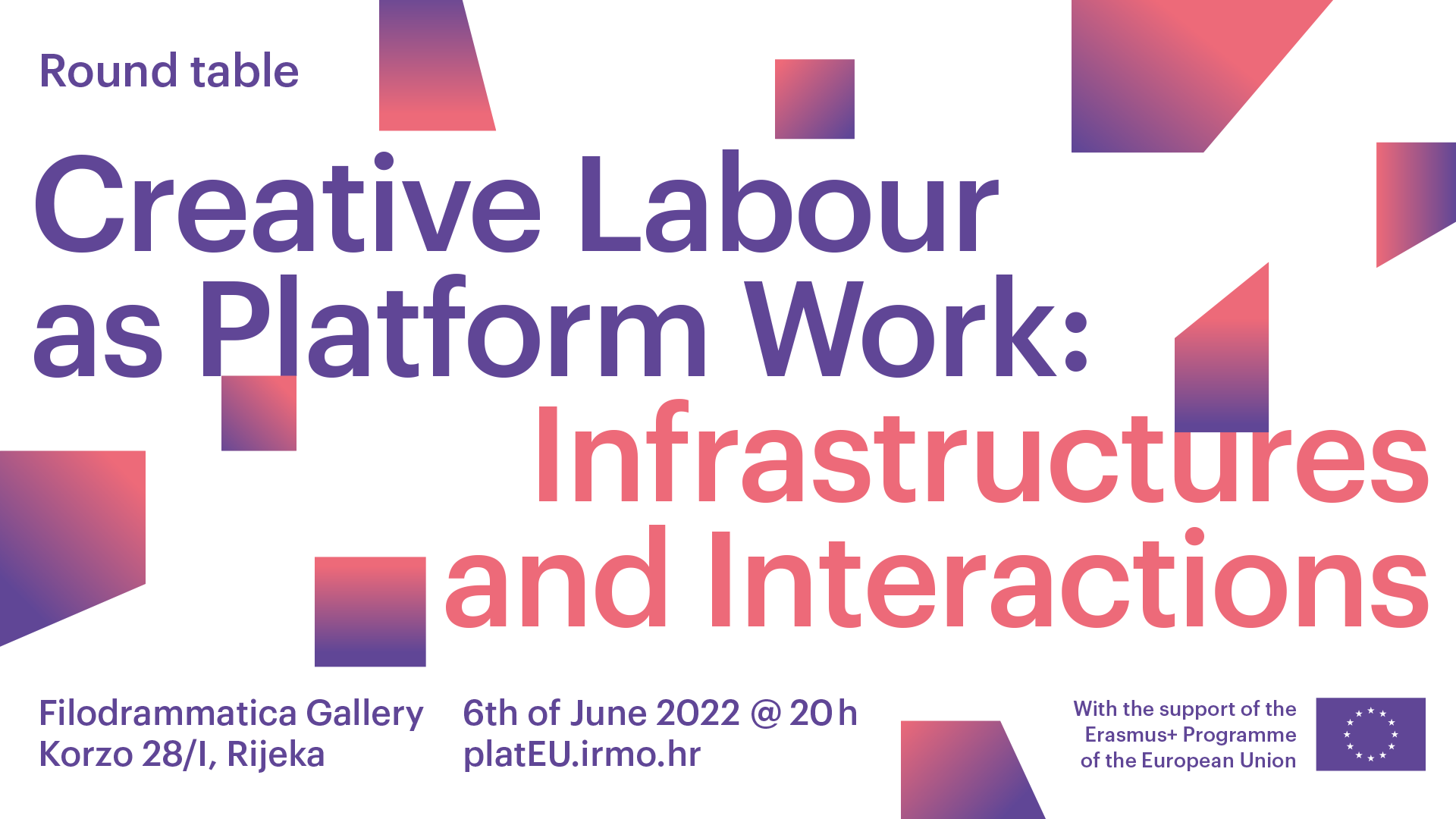Within the platEU project the round table discussion entitled ‘Creative Labour as Platform Work: Infrastructures and Interactions’ will be organized on the 6th of June 2022 at 20h in Filodrammatica Gallery in Rijeka. The participants of the round table discussion will be Ana Alacovska, Copenhagen Business School, Denmark and Jamie Woodcock, The Open University, UK, while the moderator of the discussion will be Valerija Barada, University of Zadar, Croatia. Round table is organized by the Department for Culture and Communication, Institute for Development and International Relations (IRMO), Zagreb and Drugo more, Rijeka.
About the topic of the round table:
Platforms have become ubiquitous in our daily lives influencing both our personal and our working spheres in multifaceted ways. With the growth of online platforms, new modes of platform-mediated working have been developed, thus, opening space for what is called ‘gig work’, ‘platform work’, ‘virtual work’, ‘digital labour’ etc. Research on the gig economy show global inequalities in the type of work done and relationships to work, levels of state regulation and data protection, as well as worker power. However, within the literature on the gig work, platform work and digital labour in general, there has been a lack of focus on the platform-mediated creative work. Such work is mainly done by cloud-based consultants and web-based freelancers primarily in the area of visual arts, design, photography and illustration. Taking into account that creative labour has been taken as a model way of project-to-project type of work, where ‘gigs’ have been taken as a prototype of the ‘new mode of work’ in the global gig economy, one needs to ask what is ‘new’ and what is ‘old’ in the performance of such labour on digital labour platforms? With this debate we want to open up the discussion on these issues and situate the creative workers within the overall global platform economy. The aim of the round table is also to unpack the infrastructural underpinnings of the platform-mediated creative labour, how labour inequalities are (re)produced within such work, in order to see whether there is space for workers’ solidarities and what policies in this regard would be possible.
About participants:
Dr Ana Alacovska is Associate Professor of Sociology of Culture at the Copenhagen Business School in Denmark. Her research has been supported by a range of research grants awarded by the Danish Research Fund, Swiss Agency for Development and Cooperation, DANIDA, H2020 and others. Her current research agenda is driven by a commitment to the empirical investigation and the theoretical critique of established notions of precarity, hope and care in creative labour, as practised locally in the creative industries in Africa (most notably Ghana) as well as globally, on digital gig work platforms. She is also exploring the effects of popular culture genres such as science fiction on the ways in which creative workers work in practice. Her work has found home in journals such as Sociology, The Sociological Review, Work, Employment and Society, Human Relations, Organisation Studies among others.
Dr Jamie Woodcock is a Senior Lecturer at the Open University and a researcher based in London. He is the author of The Fight Against Platform Capitalism (University of Westminster Press, 2021), The Gig Economy (Polity, 2019), Marx at the Arcade (Haymarket, 2019), and Working the Phones (Pluto, 2017). Jamie completed his PhD in sociology at Goldsmiths, University of London and has held positions at Goldsmiths, University of Leeds, University of Manchester, Queen Mary, NYU London, Cass Business School, the LSE, and the University of Oxford. His research is inspired by workers’ inquiry and focuses on labour, work, the gig economy, platforms, resistance, organising, and videogames. He is on the editorial board of Notes from Below and Historical Materialism. He is a member of The Research into Employment, Empowerment and Futures group (REEF) at the Open University.
This round table is part of activities of the Erasmus+ Jean Monnet project ‘European Union Policies and the Platformisation of Cultural and Audio-visual Sectors – platEU’ (2020-2022) dedicated to promoting discussion and reflection on EU policies related to the impact of online platforms on cultural and audio-visual (AV) sectors in Europe. More information can be found at the website of the project: https://plateu.irmo.hr/en/
Program is supported by:
Ministry of Culture and Media of the Republic of Croatia, City of Rijeka – Department for culture
Drugo more is a beneficiary of the financial support of the Kultura Nova Foundation
Association of organisations Molekula manages Filodrammatica



